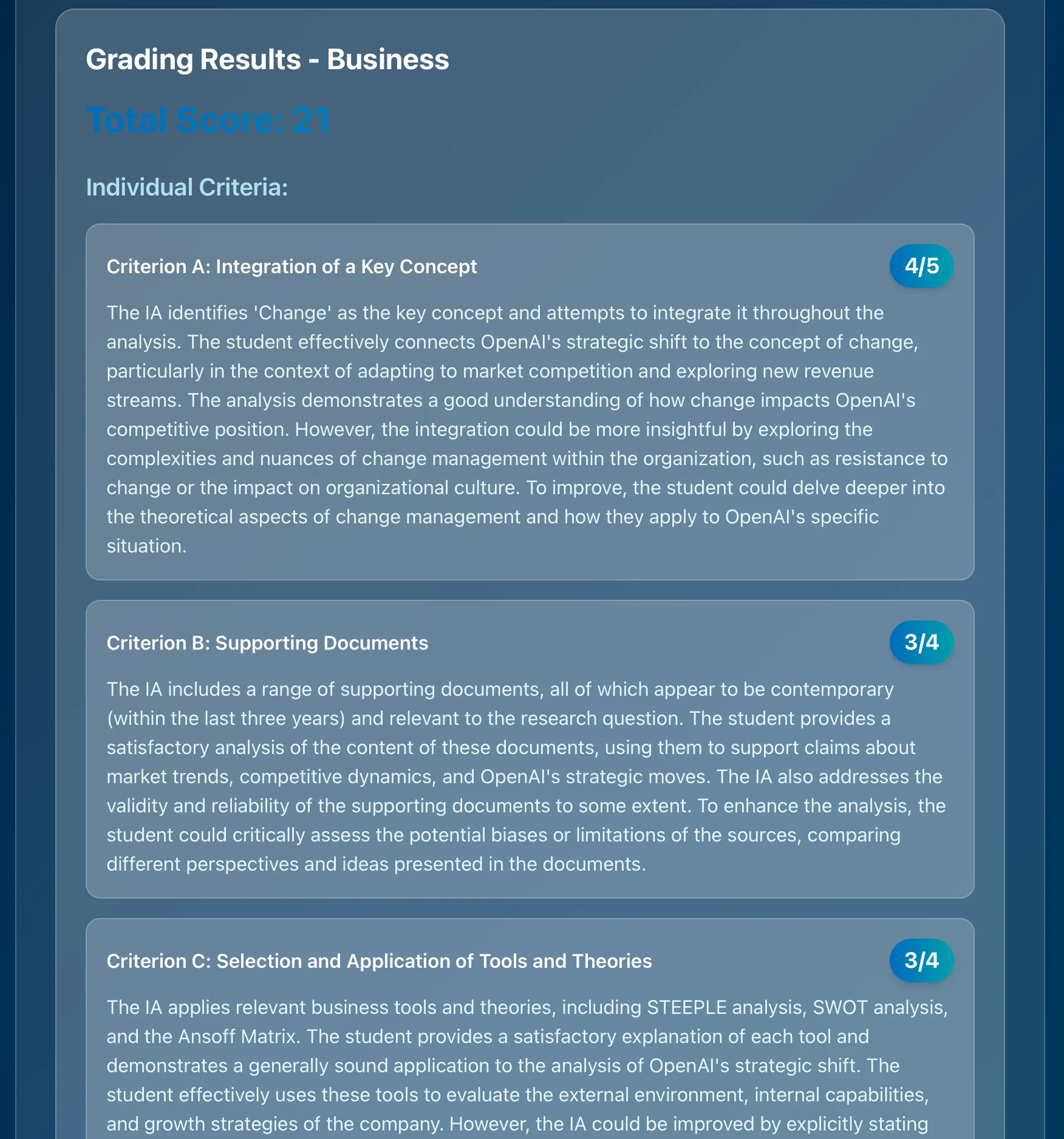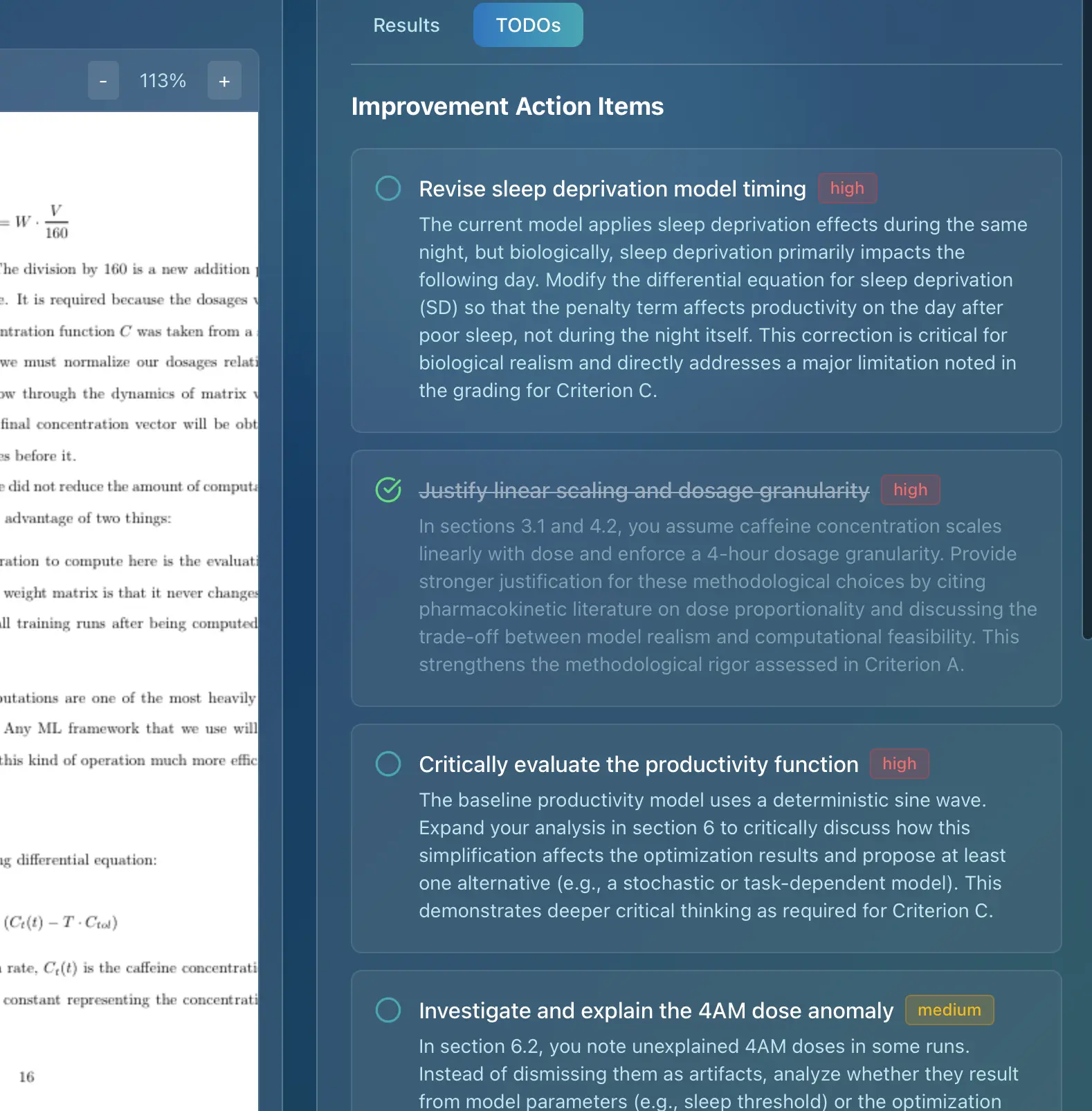How to Prepare for IB Exams: 30-Day Study Plan
Preparing for your International Baccalaureate (IB) exams can feel overwhelming, but with a structured approach, you can confidently tackle any subject. This comprehensive 30-day study plan is designed to help you maximize your score by providing a clear roadmap, effective study strategies, and practical tips for success. Whether you're aiming for a 7 in a specific subject or simply want to improve your overall performance, this guide will equip you with the tools and knowledge you need. Let's dive in and conquer those IB exams!
Introduction (Answer the Query Immediately)
The International Baccalaureate (IB) Diploma Programme is a rigorous academic journey, and the final exams are a crucial component. Many students search for an "IB exam guide" to help them navigate this challenging period. This 30-day study plan is your comprehensive "IB help" resource. We'll break down effective study strategies, time management techniques, and subject-specific tips to help you excel. This plan is designed to be adaptable to your individual needs and learning style, ensuring you're fully prepared to demonstrate your knowledge and skills. We'll also touch upon how modern technology, including AI grading assistants, can play a vital role in your preparation.
Struggling with IB Assessments?
Get instant, detailed feedback on your work with AI that understands IB criteria.

Understanding Your IB Exams
Before diving into the 30-day plan, it's essential to understand the structure and expectations of your IB exams. Each subject has its own unique format, assessment criteria, and weighting.
Know Your Subjects and Assessment Objectives
- Review the Subject Guides: The official IB subject guides are your bible. Download them from the IB website and familiarize yourself with the syllabus, assessment objectives, and command terms.
- Understand the Assessment Criteria: Pay close attention to the assessment criteria for each paper. This will help you understand what the examiners are looking for and how to structure your answers effectively. For example, in a History exam, understanding the difference between "describe," "explain," and "evaluate" is crucial.
- Identify Your Strengths and Weaknesses: Honestly assess your knowledge and skills in each subject. Where do you excel? Where do you struggle? This will help you prioritize your study efforts.
Exam Format and Time Management
- Paper Structure: Understand the structure of each exam paper, including the number of questions, time allotted, and weighting of each section.
- Time Allocation: Practice allocating your time effectively during practice exams. Don't spend too long on any one question.
- Command Terms: Master the IB command terms (e.g., analyze, evaluate, discuss). Understanding what each term requires is crucial for answering questions accurately.
The 30-Day IB Exam Study Plan: A Detailed Breakdown
This plan is a template; adjust it to fit your individual needs and subject requirements.
Week 1: Foundation and Review
- Days 1-3: Diagnostic Assessments: Take practice exams or past papers for each subject to identify your strengths and weaknesses. This will help you focus your study efforts.
- Days 4-7: Content Review: Review the core concepts and key topics in each subject. Use your textbooks, notes, and online resources. Create summaries, mind maps, or flashcards to consolidate your knowledge. For example, if you're studying Biology, focus on reviewing key concepts like cell structure, genetics, and evolution.
Week 2: Focused Study and Practice
- Days 8-11: Targeted Practice: Focus on your weaker areas. Work through practice questions and past papers, paying close attention to the assessment criteria. Seek help from your teachers or classmates if you're struggling.
- Days 12-14: Subject-Specific Strategies: Develop subject-specific strategies for tackling different types of questions. For example, in a Math exam, practice solving different types of problems and learn how to apply formulas effectively.
Week 3: Consolidation and Application
- Days 15-18: Full-Length Practice Exams: Simulate exam conditions by taking full-length practice exams under timed conditions. This will help you build stamina and improve your time management skills.
- Days 19-21: Review and Refine: Review your performance on the practice exams and identify areas for improvement. Refine your strategies and address any remaining gaps in your knowledge.
Week 4: Final Preparation and Relaxation
- Days 22-25: Focused Revision: Review key concepts and practice questions in your strongest areas. This will boost your confidence and help you perform well on the exam.
- Days 26-28: Exam-Specific Strategies: Review exam-specific strategies, such as time management, question selection, and essay writing.
- Days 29-30: Rest and Relaxation: Get plenty of sleep, eat healthy meals, and engage in relaxing activities. Avoid cramming or stressing out.
Subject-Specific Tips for Success
While the 30-day plan provides a general framework, here are some subject-specific tips to help you excel in your IB exams:
- IB Math: Practice, practice, practice! Work through as many problems as possible and focus on understanding the underlying concepts.
- IB English: Read widely, analyze texts critically, and practice writing essays under timed conditions.
- IB History: Develop strong analytical and argumentative skills. Practice writing essays that are well-structured, evidence-based, and persuasive.
- IB Science (Biology, Chemistry, Physics): Focus on understanding the core concepts and principles. Practice applying your knowledge to solve problems and interpret data.
- IB Economics: Understand the key economic theories and models. Practice applying them to real-world scenarios.
Pro Tip: Get AI-Powered Grading
Stop second-guessing your grades. Get instant feedback aligned with official IB rubrics.

Common Challenges/Mistakes and How to Avoid Them
Many IB students face similar challenges during exam preparation. Here are some common mistakes and how to avoid them:
- Procrastination: Start studying early and create a realistic study schedule.
- Passive Learning: Engage actively with the material by summarizing, questioning, and applying your knowledge.
- Ignoring Weaknesses: Focus on your weaker areas and seek help from your teachers or classmates.
- Poor Time Management: Practice allocating your time effectively during practice exams.
- Lack of Sleep: Get plenty of sleep in the days leading up to the exam.
- Not Seeking Feedback: Ask your teachers for feedback on your practice essays and assignments.
Advanced Tips/Strategies for IB Exam Success
Beyond the basics, here are some advanced strategies to help you stand out:
- Develop Critical Thinking Skills: IB exams assess your ability to think critically, analyze information, and form your own opinions.
- Master Essay Writing: Practice writing well-structured, evidence-based essays that demonstrate your understanding of the subject matter.
- Use Effective Study Techniques: Experiment with different study techniques, such as the Feynman Technique, spaced repetition, and active recall.
- Stay Organized: Keep your notes, textbooks, and resources organized to save time and reduce stress.
- Seek Mentorship: Connect with successful IB alumni or experienced teachers who can provide guidance and support.
Technology and Modern Assessment: The Role of AI
Technology is transforming the way we learn and assess knowledge, and the IB is no exception. AI-powered tools are becoming increasingly valuable for both students and teachers.
One significant area is assessment. Marksy, as a leading AI grading assistant, helps teachers provide consistent, detailed feedback on IB assessments. This is particularly useful for internal assessments (IAs) and extended essays, where detailed feedback aligned with the official IB rubrics is crucial.
AI grading tools like Marksy use official IB criteria to ensure accuracy and fairness. They can quickly analyze student work, identify strengths and weaknesses, and provide suggestions for improvement, all while adhering to the rigorous standards of the IB. This not only helps students understand exactly how to improve their work but also saves educators valuable time, allowing them to focus on personalized instruction and support.
The time-saving benefits for educators are substantial, allowing them to provide more comprehensive feedback without being overwhelmed by the workload. For students, the detailed, criterion-by-criterion feedback provides a clear roadmap for improvement, leading to higher scores and a deeper understanding of the subject matter.
Conclusion with Clear Next Steps
Preparing for IB exams requires dedication, discipline, and a well-structured study plan. By following the 30-day plan outlined in this guide, you can maximize your chances of success and achieve your academic goals. Remember to understand the exam format, practice consistently, seek feedback, and stay organized. Don't forget to explore how AI tools like Marksy can enhance your learning and assessment experience.
Ready to take your IB exam preparation to the next level? Try Marksy for free today and experience the power of AI-driven feedback! See how Marksy can help you get better IB scores or streamline your grading workflow.